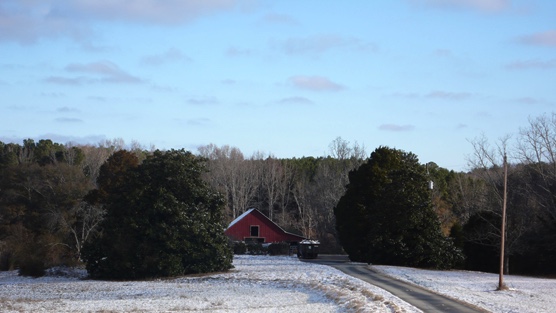Jul 8, 2019Regional organic resource center launched in Georgia
When Rebecca and Ross Williams shuttered their cheesehouse at Many Fold Farm, about an hour outside of Atlanta, in 2017, it was with a heavy heart but a determination to work towards a new agrarian economy in the south. One that allows farmers to prosper while supporting the good food movement and being responsible stewards of the soil and environment. A new partnership with Rodale Institute, a global leader in regenerative organic agriculture, is making that vision a reality.
This fall Rodale Institute will launch the Southeast Organic Center, a new regional resource center focused on the unique challenges of farmers in the southeast United States, at Many Fold Farm.
“Many Fold Farm, our staff, and Rodale Institute share a belief that healthy soil is the key to human health and our ability to survive on our planet,” said Rebecca Williams. “Strong scientific and economic models that allow regenerative organic farmers to compete with conventional agriculture are necessary to shift the paradigm of how we grow our food. Scientific research and high-quality farmer education conducted by the Southeast Organic Center will validate and expand truly sustainable agricultural practices in order to save our food system, our planet, and ourselves.”
The Southeast Organic Center, which will be based on the 300-acre farm in the Chattahoochee Hills, will serve as a research and education hub focused on:
- Increasing the number of farms and acres in organic production in the region.
- Establishing a long-term research trial to determine changes in soil health, yields, economic models, and more in this unique climate and soil type.
- Solving challenges for organic farmers in the region, including pests, disease, weed management.
- Farmer training and pathways to market.
Despite organic having grown to a $50 billion industry annually in the United States, according to the 2017 Census of Agriculture, Georgia has only 88 certified organic farms, representing just 0.5% of organic farms in the United States. Historically, organic production has been low in southern states, where warm weather makes it harder to deal with pests, disease and weeds without synthetic chemicals like pesticides and herbicides.
However, according to the U.S. Department of Agriculture’s National Agricultural Statistics Service, the South saw the most growth in organic farming from 2011-2016. For example, Alabama and South Carolina both saw increases of more than 200% since 2011. And several other Southern states saw their certified organic farm count more than double in those five years.
“It’s time for us to invest in our southern farmers,” said Jeff Moyer, executive director of Rodale Institute. “This region is ripe for opportunities and explosive growth in organic agriculture. But organic farming is based on biology. It’s farming with nature. So, it’s unique in every community. You have to work with the soil, weather patterns, and seeds and breeds well suited to the region. We’re excited to roll up our sleeves and work on solutions that will improve the lives of real farmers and consumers in this part of the country.”
The Southeast Organic Center is Rodale Institute’s second regional resource center. They opened the Midwest Organic Center with partners Indian Creek Nature Center and Frontier Co-op in Marion, Iowa, earlier this year.
A key partner of the Southeast Organic Center will be nearby Serenbe, a wellness community that offers a unique opportunity for consumer education and community engagement. Serenbe will allow the Southeast Organic Center to connect farmers and eaters with educational programming, healthy eating events and more. Additional partners include Georgia Organics, Southern SARE, and The Conservation Fund.


“Rodale Institute has been the progressive voice for organic farming since the 1940’s and we are delighted to join them with models and policy for saving farmland, training new farmers and creating a path to ownership for those farmers,” said Steve Nygren, founder and CEO of Serenbe.
Immediate next steps include hiring a research director for the site, forming an advisory committee, and designing the long-term research trial. They expect to break ground on the research trial this fall.
Rodale Institute is a 501(c)(3) nonprofit dedicated to pioneering organic farming through research and outreach. For seventy years, the Institute has been researching the best practices of organic agriculture and sharing findings with farmers and scientists throughout the world, advocating for policies that support farmers, and educating consumers about how going organic is the healthiest option for people and the planet. Learn more at RodaleInstitute.org.
Photo at top: Many Fold Farm, outside of Atlanta, Georgia, will partner with Rodale Institute to create a new hub for organic farming research. Photo: Ross Williams















